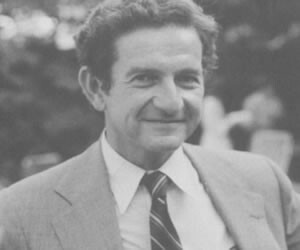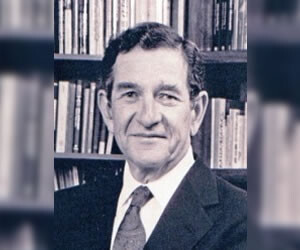

Last Updated: 15 May, 2023 | Views: 860
Age: 64
Profession: Doctor
Other Profession(s): Psychiatrist
Famous For: Matching Law & The Bell Curve
Higher Education: City College of New York (BA) Harvard University (PhD)
About (Profile/Biography):
Richard Herrnstein was born on May 20, 1930, and passed away on September 13, 1994. He was a Harvard University psychologist. He studied animal learning in the Skinnerian tradition. He served as the Edgar Pierce Professor of Psychology at Harvard for five years, and he previously chaired the Psychology Department. He co-authored the controversial 1994 book The Bell Curve on human intelligence with Charles Murray. His organization was one of the Society for Quantitative Analysis of Behavior founders.
Richard Herrnstein Education: His educational background includes a Bachelor's and Master's degree from City College of New York, as well as a diploma from High School of Music & Art. Harvard University awarded Herrnstein his Ph.D. in 1955.
Richard Herrnstein Career:
Richard Herrnstein was considered a "star pupil" of B. Skinner during his PhD studies at Harvard. Until his death, he directed the Harvard pigeon lab that Skinner established.
Richard Herrnstein greatly contributed to cognitive psychology through his research. Hernstein wrote A Source Book in the History of Psychology in 1965 with Edwin Boring.
His position at Harvard University was that of Edgar Pierce, Professor of Psychology. He chaired the Harvard Department of Psychology from 1967 to 1971.
The Psychological Bulletin was also edited by him from 1975 to 1981. His election to fellowship by the American Academy of Arts and Sciences occurred in 1977.
His early research focused on natural concepts and human intelligence, and his controversial book, The Bell Curve, made him a prominent figure.
Richard Herrnstein Unknown Facts:
Richard Herrnstein advocated genetic research into intelligence. Research on IQ heritability led him to conclude that genes play an important role in determining intelligence.
Richard Herrnstein's contributions to psychology were recognized despite the controversy surrounding his work. The American Psychological Association awarded him the Distinguished Scientific Award for Psychology Applications in 1983.
Wait!
Here're some popular profiles for you.


